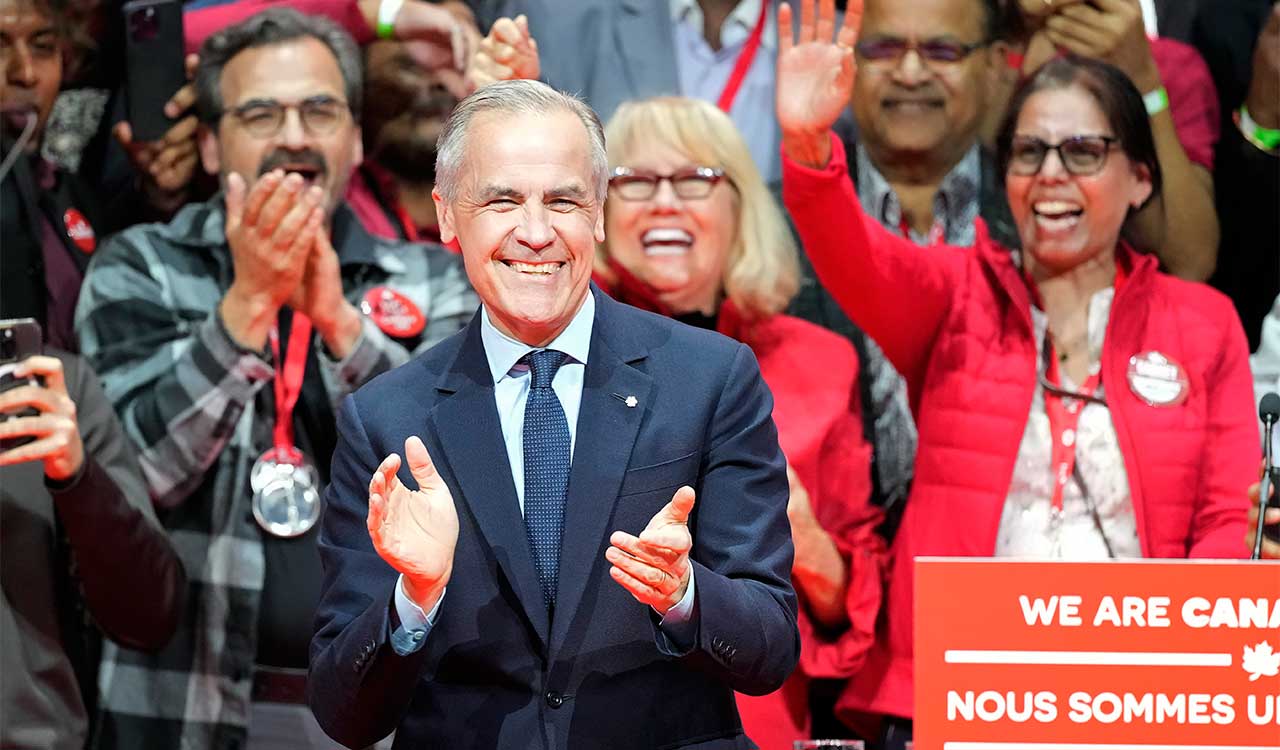Editorial: Return of the Liberals in Canada

The Trump Administration’s reckless comments undermining Canada’s sovereignty played a major role in the decisive mandate for Carney whose aggressive stance against the United States found resonance with voters
Published Date – 29 April 2025, 06:49 PM

Largely helped by anti-Trump sentiment sweeping across the country, the Liberal Party, led by Mark Carney, has won the national elections in Canada and is all set to form the next government. The Trump Administration’s reckless comments undermining Canada’s sovereignty and the tariff threats played a major role in the decisive mandate for Carney whose aggressive stance against the United States found resonance with the voters. Self-respect, sovereignty and economic survival became the defining issues in the elections. Carney, who took over the party’s reins in January following the exit of the much-discredited Justin Trudeau, succeeded in turning the tide in favour of the Liberal Party by building a strident narrative against Trump’s bullying tactics. His poll campaign largely focused on protecting the country’s sovereignty from the marauding neighbour. “Trump wants to break us so America can own us” formed the core of Carney’s campaign theme. There has been growing frustration among Canadians over America’s high-handed policies. Carney, a banker-turned-politician, used that to his advantage. At the start of the year, Carney was a former central banker with no experience as a politician. By mid-March, he was being sworn in as Prime Minister, the first to have never held elected public office before, after a resounding win in the Liberal leadership race. He also took full advantage of the new political landscape, leaning into his experience helping Canada and the UK navigate previous crises at a time when Canadians were feeling anxious about their economic future.
For India, Carney’s win raises hopes of re-setting bilateral relations that came under severe strain during his predecessor’s regime. One of the important foreign policy tasks before Carney is to repair the damage caused to the bilateral ties in the recent past. Over decades, Canada provided safe sanctuary to anti-India elements openly calling for secession, taking out rallies glorifying the assassination of former Prime Minister Indira Gandhi, and asking Hindus to leave Canada. New Delhi had sent requests to Ottawa several times to extradite people engaged in anti-India activities from Canadian soil. It is time Canada introspected its approach towards terrorism. The Carney administration must walk the talk in allaying the fears of the Indian diaspora and crack down on Khalistani activists. Given the strong bond between the people of the two countries and a robust trade and business relationship, there is a need to restore mutual confidence. Addressing India’s concerns about pro-Khalistan extremists operating from Canadian soil and strengthening counterterrorism collaboration with India should be among the priority areas of the new government. On the economic front, reviving discussions on the stalled Canada-India Comprehensive Economic Partnership Agreement (CEPA) and encouraging mutual investment flows in emerging technology areas will provide a constructive path forward. It is heartening that Carney, himself a renowned economist, has signalled his intention to rebuild relations with India.






